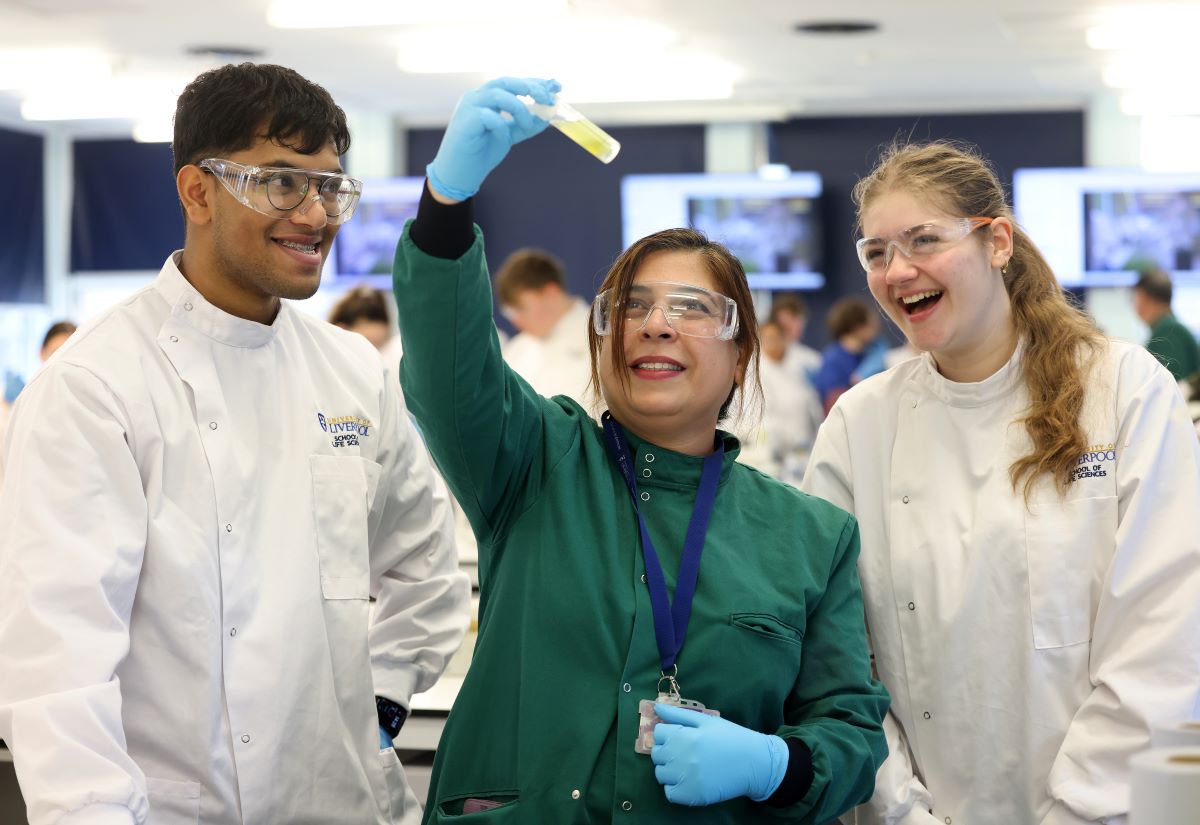
Biological and Biomedical Sciences
We are a melting pot for the study of the biological sciences, and have been for over 100 years. Find out what’s unique about studying Biological and Bio-medical Sciences at Liverpool and explore related programmes.
Over £30m
has recently been invested in our facilities, such as our Biology Teaching Centre, the state-of-the-art Biosciences Building, the Biomedical Sciences Building and the Human Anatomy Resource Centre
4th
ranked university in the Russell Group for Pharmacology
Over 100 years
of a long and rich history at the University of Liverpool, starting in the latter part of the 19th Century
Inside Biosciences. A conversation with Tanya Horne and Professor Jay Hinton

Meet us
Whether you're interested in undergraduate or master's study, or looking for postgraduate research opportunities, come along to our events to meet us and find out more about studying at Liverpool.
Biological Sciences 2+2 – Zhang Minxing
Zhang Minxing shares their on the Biological Sciences 2+2 course.